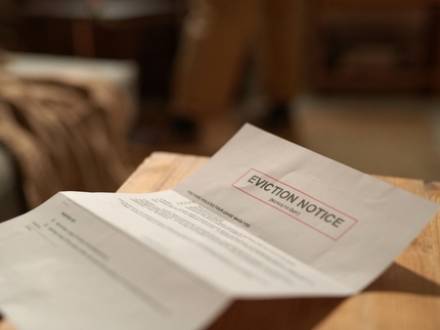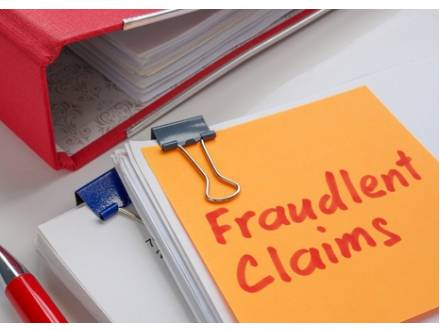Contact Our Firm
The use of the Internet or this form for communication with the firm or any individual member of the firm does not establish an attorney-client relationship. Confidential or time-sensitive information should not be sent through this form.
I have read and understand the Disclaimer and Privacy Policy.

Recent Blog Posts
Why Hire a Lawyer to Draft Your Business Contract?
 It can be tempting for a busy small business owner to turn to a form agreement or use a template found online to draft an agreement. However, the work and expertise of an attorney involve using a unique knowledge of commercial dealings, business law, and your own company’s needs to craft an agreement tailored to stand up in court and protect your business. This can save you money by establishing provisions that are legally and financially beneficial and negotiating a deal that is in your best interests–whether that is for a commercial real estate lease, investment, acquisition, vendor agreement, or anything in between. You can also save time by doing it once and doing it right. An experienced Fort Lauderdale, FL business contract attorney can draft and negotiate a contract that serves your business’s best interests.
It can be tempting for a busy small business owner to turn to a form agreement or use a template found online to draft an agreement. However, the work and expertise of an attorney involve using a unique knowledge of commercial dealings, business law, and your own company’s needs to craft an agreement tailored to stand up in court and protect your business. This can save you money by establishing provisions that are legally and financially beneficial and negotiating a deal that is in your best interests–whether that is for a commercial real estate lease, investment, acquisition, vendor agreement, or anything in between. You can also save time by doing it once and doing it right. An experienced Fort Lauderdale, FL business contract attorney can draft and negotiate a contract that serves your business’s best interests.
Negotiation Skills
Drafting an agreement typically involves negotiating it. This generally entails some back and forth with all relevant parties. Negotiation is both an art and a skill, and an experienced and proven attorney can negotiate a deal for the best-case scenario that you can legally receive while preserving and even strengthening the business relationship.
What Should Businesses Include In Their Employment Contracts?
 United States and Florida employment law is at-will, meaning that both the employer and employee can terminate the employment at any point and for any reason. As a rule, employers may hire employees without entering into an employment agreement. However, there are situations in which an employer might wish to define the employment relationship in an official agreement. In these cases, there are certain common provisions that employers should include. An experienced Broward County, FL business law attorney can guide you through the process of drafting an employment agreement.
United States and Florida employment law is at-will, meaning that both the employer and employee can terminate the employment at any point and for any reason. As a rule, employers may hire employees without entering into an employment agreement. However, there are situations in which an employer might wish to define the employment relationship in an official agreement. In these cases, there are certain common provisions that employers should include. An experienced Broward County, FL business law attorney can guide you through the process of drafting an employment agreement.
When Should You Have an Employment Agreement?
While it is not mandatory to have an employment agreement, in some cases it is advantageous. For example, if you are hiring for a high-level position and want to provide an incentive to retain the best talent, an employment agreement can be a draw. Additionally, it can ensure that you lock in the employee for a certain period of time. This may be a good idea if the employee is necessary to run the business during a key event such as a merger, for example.
What if Your COA Fails to Maintain Common Elements?
 Arguably one of the reasons for the popularity of condominiums is the expectation that the common areas will be pleasant and well-maintained. Beyond any individual expectation, condominium associations have certain legal obligations to maintain the common areas, which includes making repairs when things inevitably break.
Arguably one of the reasons for the popularity of condominiums is the expectation that the common areas will be pleasant and well-maintained. Beyond any individual expectation, condominium associations have certain legal obligations to maintain the common areas, which includes making repairs when things inevitably break.
If your condominium association has failed to maintain the common elements, you have legal resources to protect your rights and financial investment as a homeowner. A first step would be to discuss your concerns with an experienced Fort Lauderdale, Florida real estate litigation attorney who can advise you on your legal options.
Are Condominium Associations Supposed to Maintain Common Areas?
In Florida, condominium associations are responsible for maintaining the common elements, which are those portions of the complex that belong to all the unit owners, such as the lobby, elevator, gardens, hallways, parking lots, swimming pools and fitness center.
Three Common Landlord Mistakes During Florida Evictions
 Whether you are renting out your home or running a business renting out multiple properties, there may come a time when you may have to evict your tenant. To evict a tenant in Florida you must follow specific procedures.
Whether you are renting out your home or running a business renting out multiple properties, there may come a time when you may have to evict your tenant. To evict a tenant in Florida you must follow specific procedures.
For this reason, if you find yourself in this situation, it will be helpful to be aware of some of the common mistakes that Florida landlords make during the eviction process, as these mistakes can cost you legally and financially. An experienced Oakland Park, FL landlord representation real estate attorney can advise you on the Florida eviction process and what to avoid to safeguard your property.
When Can You Evict a Tenant in Florida?
Florida landlords may terminate a lease early and evict a tenant for reasons which include:
-
Nonpayment of rent
Fraudulent Inducement in Florida Business Litigation
 When competitors or clients behave deceptively, it can threaten a business’s bottom line and reputation. If your Florida business has been the victim of fraud, you have a right to turn to the legal system for protection and redress.
When competitors or clients behave deceptively, it can threaten a business’s bottom line and reputation. If your Florida business has been the victim of fraud, you have a right to turn to the legal system for protection and redress.
One common type of civil (rather than criminal) fraud is fraudulent inducement, and it happens when a business or individual makes false or misleading statements inducing another into entering into a contract. You can make a claim for fraud in the inducement in a court of law. An experienced Broward County, FL business law attorney can represent you in a commercial lawsuit for fraudulent inducement.
What Does Fraudulent Inducement Look Like In Practice?
To understand whether your company may have a claim for fraudulent inducement, it can be helpful to look at examples of what this type of fraud looks like in practice. When a company inflates its financial statements to obtain your investment, or conceals the condition of a commercial property to get you to enter into a commercial rental agreement, that could constitute fraudulent inducement.
What to Know About Florida’s Construction Defect Law
 If you have recently purchased a home or undertaken renovations, it is very frustrating and upsetting to discover a construction defect. It could also be expensive. If you have to pay for additional construction to repair the issue, that could quickly add up.
If you have recently purchased a home or undertaken renovations, it is very frustrating and upsetting to discover a construction defect. It could also be expensive. If you have to pay for additional construction to repair the issue, that could quickly add up.
Developers and private owners in Florida who find construction defects could also face significant financial and business costs. Additionally, construction defects can lower the value of your property. In Florida, the law that specifically governs construction defects is Florida Statute Chapter 558. An experienced Fort Lauderdale, FL real estate attorney can advise you on your legal options and on the law applicable to your claim after you discover a construction defect.
Checklist for Buying a Business
 Acquiring another business can be a great way to expand your own venture. Buying an existing business can also be a way to get started with business ownership, using a company that is already on its feet. Whether you have a target company in mind or are researching appropriate companies for acquisition, knowing what to look for and some of the considerations when acquiring a business is key to a successful acquisition.
Acquiring another business can be a great way to expand your own venture. Buying an existing business can also be a way to get started with business ownership, using a company that is already on its feet. Whether you have a target company in mind or are researching appropriate companies for acquisition, knowing what to look for and some of the considerations when acquiring a business is key to a successful acquisition.
The experienced Broward County, FL mergers and acquisitions attorney with The Elliot Legal Group, P.A. can represent you throughout the complex business purchase process.
Find the Right Business
The process of finding the right business begins by figuring out the type of business you want to buy, taking into account your interests, skills, and financial resources. You should conduct market research and draft a business plan. It is also advisable to network with individuals in the industry. Once you have narrowed down your options, you should confirm the business structure under which the company is registered in Florida or another state, as that will give you further information about whether the company is the right fit for you.
Different Kinds of Commercial Leases
 Although in some respects commercial leases contain similar terms as residential leases, such as a monthly rental price, property description, and term of the tenancy, in other respects commercial leases are structured differently.
Although in some respects commercial leases contain similar terms as residential leases, such as a monthly rental price, property description, and term of the tenancy, in other respects commercial leases are structured differently.
Not only do commercial leases leave more room for negotiation, but there are different types of commercial lease agreements that divide the parties’ responsibilities for payment of rent and expenses differently, and each one offers pros and cons depending on your business needs. An experienced Florida commercial real estate attorney can represent you in the negotiation of your commercial lease.
Gross Lease
Similar to many residential leases, under a gross lease, tenants pay a fixed rent. In exchange, landlords pay the property expenses, including insurance, utilities, maintenance, and taxes. These "full-service" leases, as they are often called, may contain "expense stop clauses" that cap landlord liability for expenses in order to prevent tenant abuse. Although these leases have a simple structure, they could end up costing tenants more if landlords bake expenses into the lease price, potentially making the lease more expensive for the tenant.
Common Venture Capital Equity Financing Documents
 Businesses seeking to grow or startups getting off the ground can seek financing from venture capital sources. Venture capital investors usually provide financial resources as well as technical support. In return, the venture capital investor receives an often significant share of the company and the right to weigh in on its direction.
Businesses seeking to grow or startups getting off the ground can seek financing from venture capital sources. Venture capital investors usually provide financial resources as well as technical support. In return, the venture capital investor receives an often significant share of the company and the right to weigh in on its direction.
Venture capital or equity financing can be a great source of financing that can lead to rapid growth and also open doors for a new business. There are a number of common deal documents which are standard to most venture capital deals. An experienced Oakland Park, FL business financing attorney can represent your business as it seeks to obtain equity financing.
Term Sheet
The term sheet is often the starting point in a venture capital financing transaction. In this non-binding document, the business and investor outline the specifics of the deal, including the investment amount, the company’s valuation, the type of stock class that the investor will receive, and any special rights or preferences. This document will be used to guide the negotiation forward.
Legal Risks of Sole Proprietorships
 It can be tempting and even appropriate for certain types of businesses to operate as a sole proprietorship. After all, if you have a one-person team and a "simple" business with low liability potential, such as a photography, freelance writing, or bookkeeping business, the ease of formation, limited paperwork, and relatively low expense of running your business as a sole proprietorship might be a draw.
It can be tempting and even appropriate for certain types of businesses to operate as a sole proprietorship. After all, if you have a one-person team and a "simple" business with low liability potential, such as a photography, freelance writing, or bookkeeping business, the ease of formation, limited paperwork, and relatively low expense of running your business as a sole proprietorship might be a draw.
Yet there are significant legal risks inherent in sole proprietorships that make this business structure somewhat less appealing. The best way to find out which business structure is right for you, and whether it is a sole proprietorship after all, is to discuss the pros and cons with an experienced Fort Lauderdale, FL business law attorney.
What is a Sole Proprietorship?
A sole proprietorship is a business that is unincorporated. It is operated by one person and there is no legal difference between the business and the owner.















